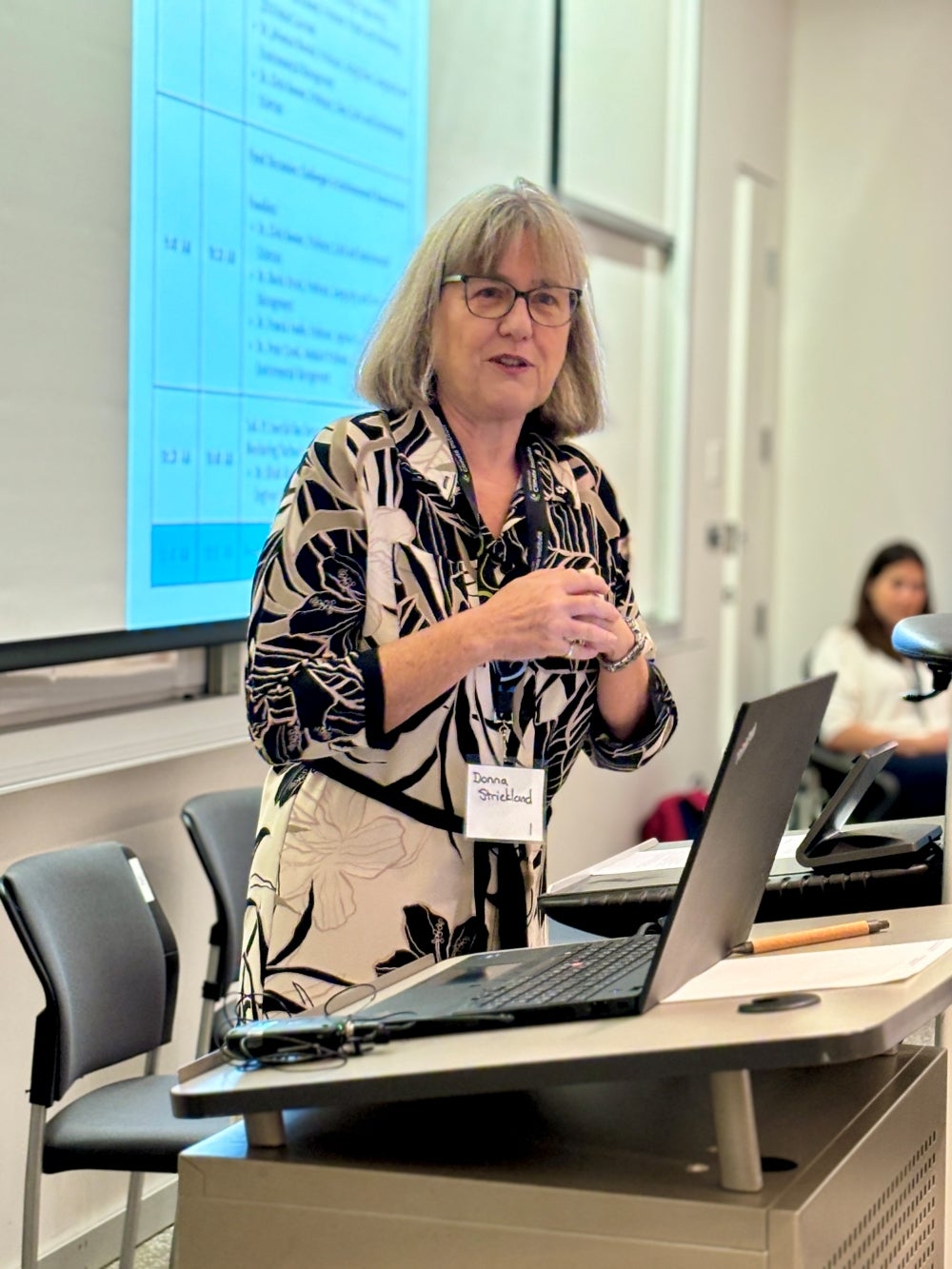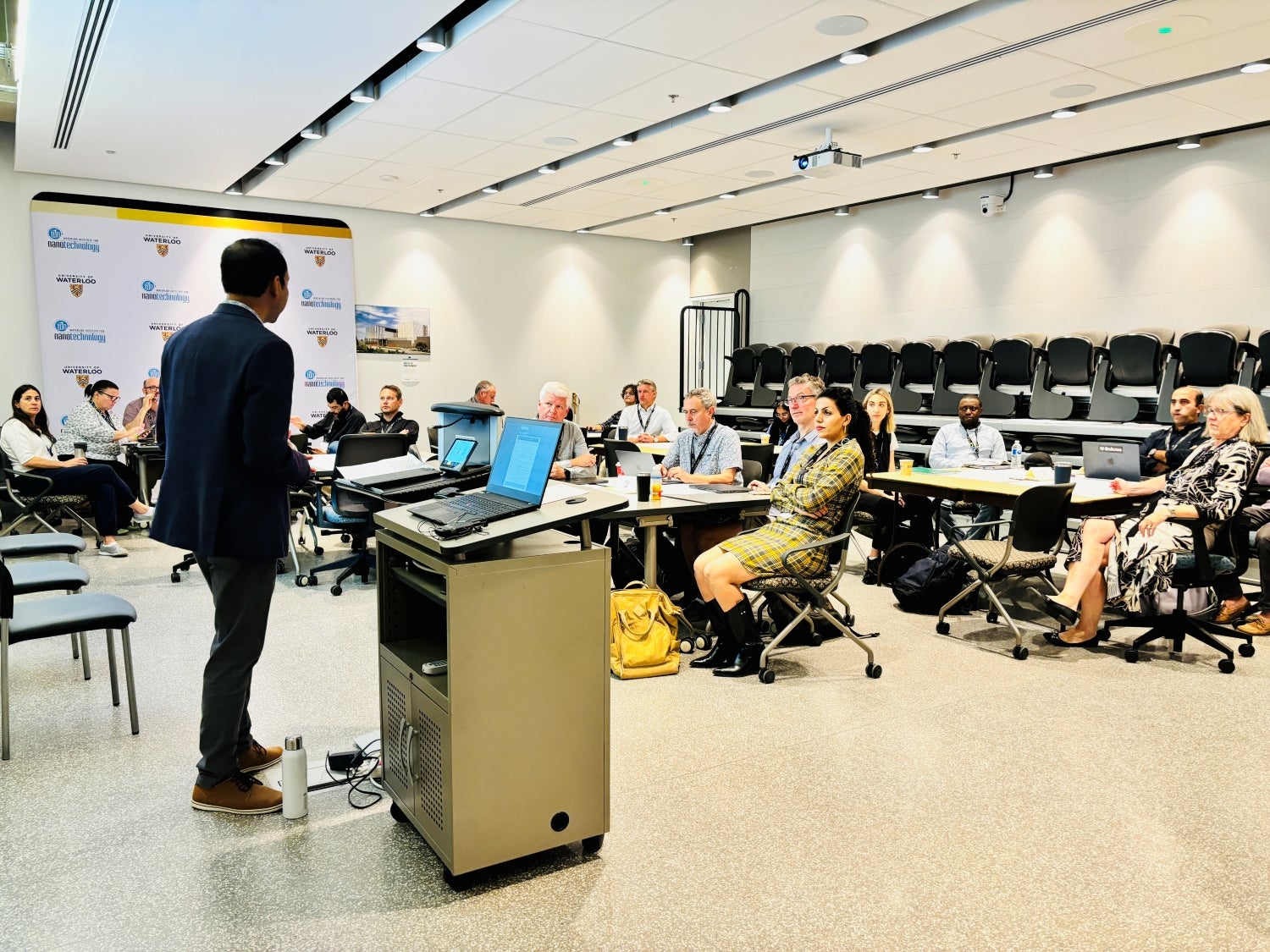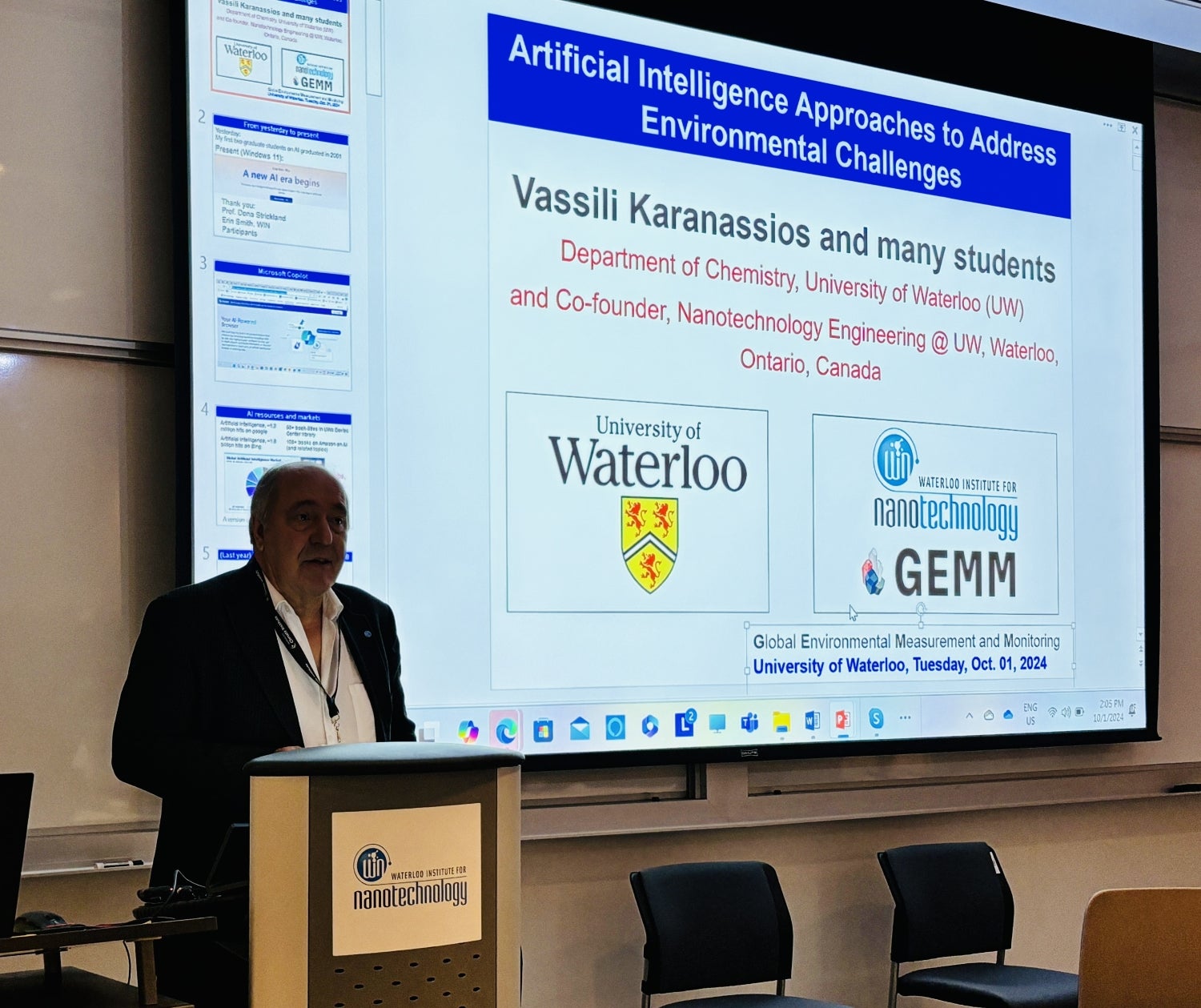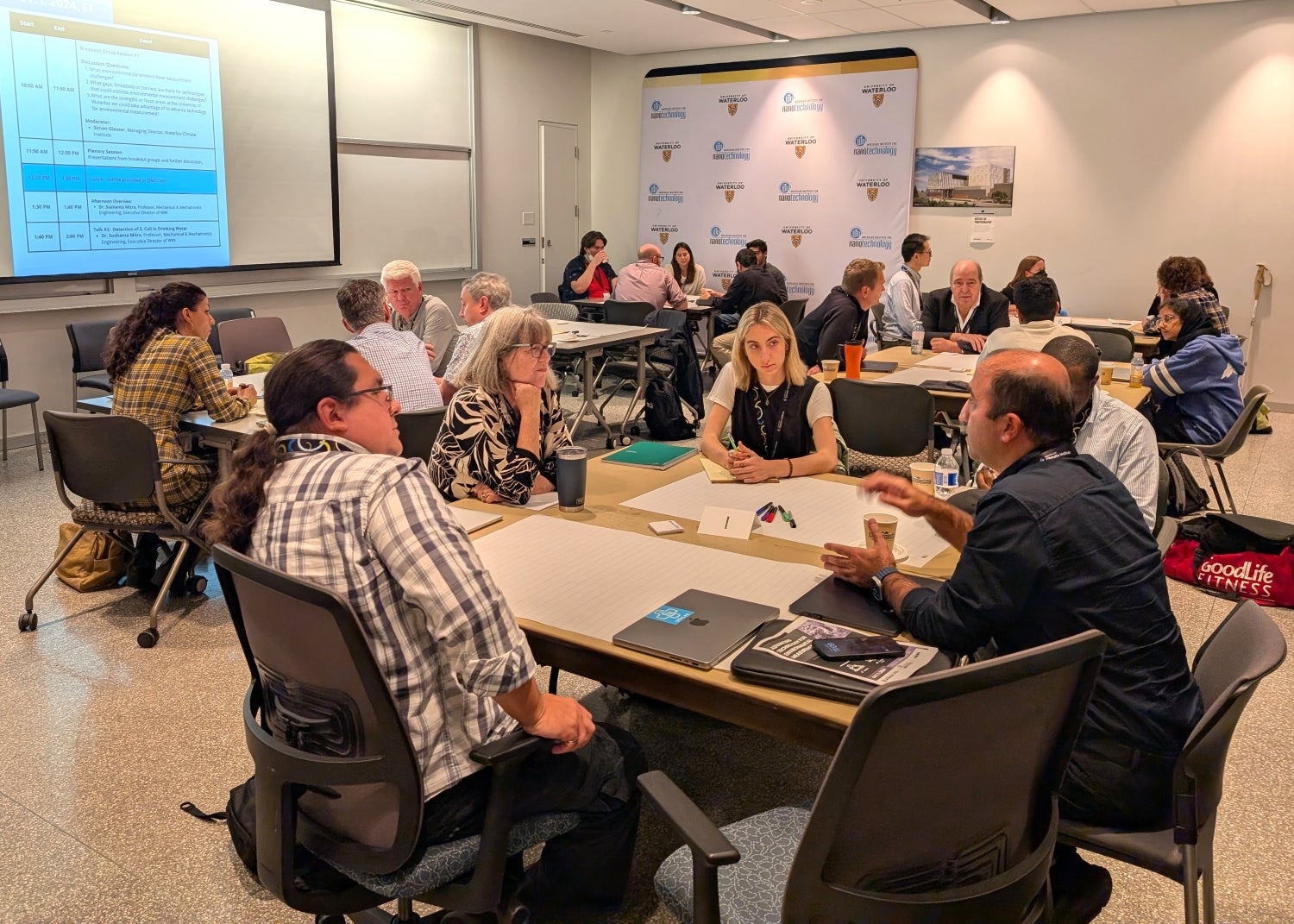The Advancing Technology for Environmental Measurement workshop was a full day event on October 1st 2024, hosted by the Waterloo Institute for Nanotechnology (WIN) in QNC at the University of Waterloo. The workshop had 37 faculty, staff, and student attendees with research interests in both environmental science and sensor technology development.
The goals of the workshop were:
- To identify environmental parameters with measurement challenges and the gaps, limitations, and barriers that technologies need to overcome to be used for environmental measurement.
-
Explore opportunities for the GEMM initiative to build on the strengths of the University of Waterloo to create cross-faculty collaborations that will advance technology for environmental measurement
We were please to welcome Prof. Sushanta Mitra (Mechanical & Mechatronics Engineering, Executive Director of WIN), Prof. David Clausi (Faculty of Engineering Associate Dean), Prof. Donna Strickland (Physics and Astronomy; 2018 Nobel Laureate), Prof. Johanna Wandel (Faculty of Environment Acting Dean), and Prof. Chris Houser (Faculty of Science Dean) to give opening remarks for the workshop.
The morning session opened with a panel discussion with environmental science researchers Prof. Chris Houser (moderator), Prof. Maria Strack, Prof. Francis Poulin, and Asst. Prof. Peter Crank. The panel discussed areas of their research with measurement challenges and current limitations in the use of sensing technologies.
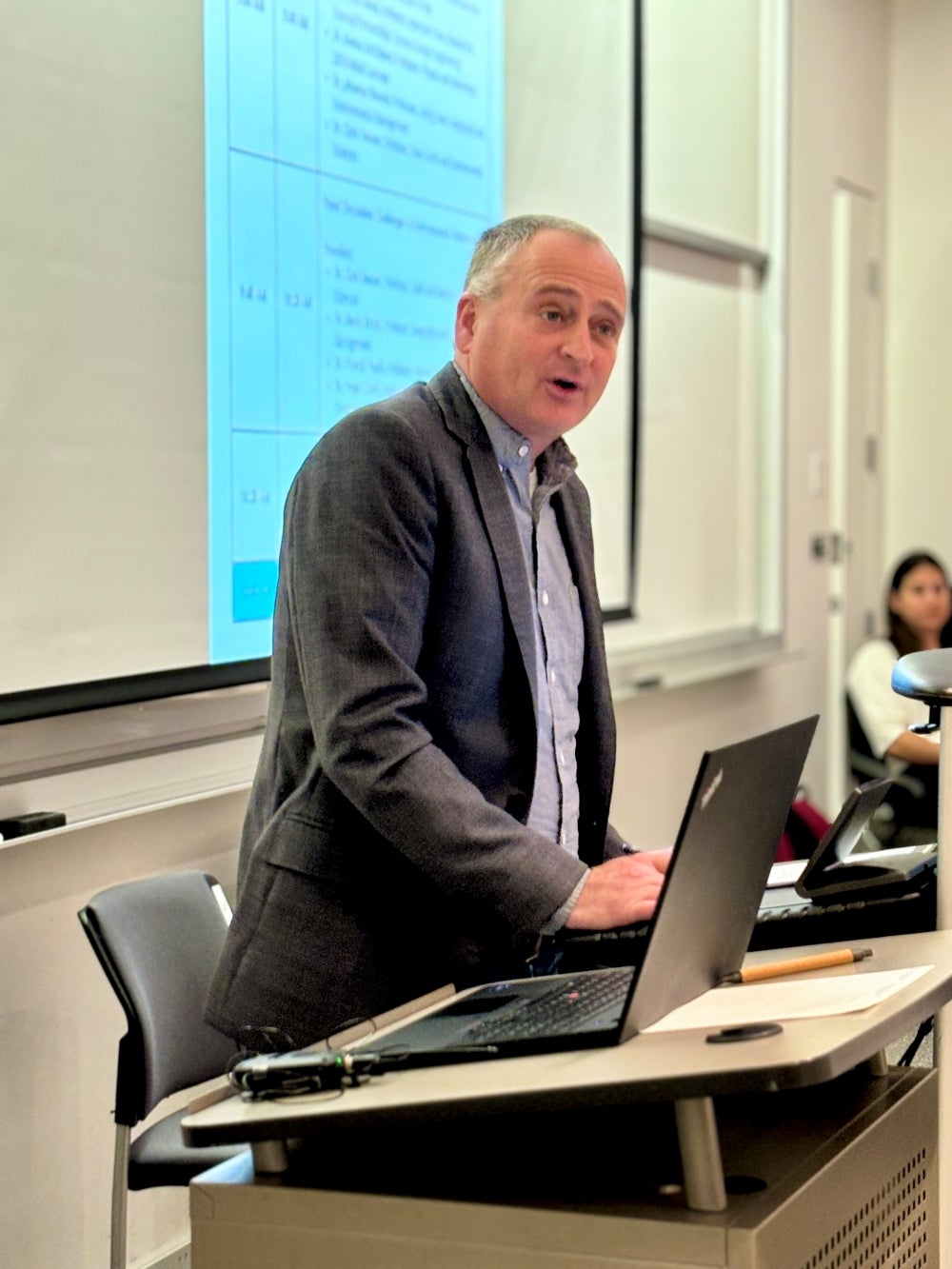
Following the panel discussion, Prof. Eihab Abdel-Rahman (Systems Design Engineering) presented the first technology talk about the development and application of MEMS / NEMS inertial gas sensors for environmental measurement and monitoring.
Simon Glauser (Waterloo Climate Institute) moderated the morning breakout session. Attendees were split into five groups representing different areas of research. Each group was instructed to brainstorm environmental parameters with measurement challenges and the gaps, limitations or barriers for technologies that could address environmental measurement challenges. They were also asked to identify strengths or focus areas at the University of Waterloo that could advance technology for environmental measurement. Following the group discussions, a representative from each group reported their findings, followed by a larger group discussion.
Lunch was served in the workshop room, giving attendee an opportunity to meet and network.
The afternoon session was opened by Prof. Mitra, followed by his technology talk about the global and local significance of E. coli outbreaks and his team’s work to develop a frugal sensing solution to monitor for safe drinking water and create early warning systems for quality issues.
Prof. Vassili Karanassios (Chemistry) presented the third technology talk about the growing prevalence if Artificial Intelligence (AI) and the opportunities for AI to address environmental measurement challenges.
Simon Glauser moderated the afternoon breakout session. Attendees were divided into different breakout groups from the morning session. They were asked to discuss what infrastructure or capabilities are needed, how we could create collaborations and networking across faculties, and what funding or partnerships could advance technology for environmental measurement as part of the GEMM initiative. Representatives from each group reported back to the full group, followed by a larger group discussion.
The workshop finished with closing remarks from Prof. Strickland and Prof. Mitra.
The organizers would like to thank Prof. Mitra and the WIN staff for hosting the workshop, Simon Glauser and the Waterloo Climate Institute, and Prof. Chris Houser and the Department of Science for their ongoing support and guidance of the GEMM initiative.
*Photo Credit: Eva Tang



